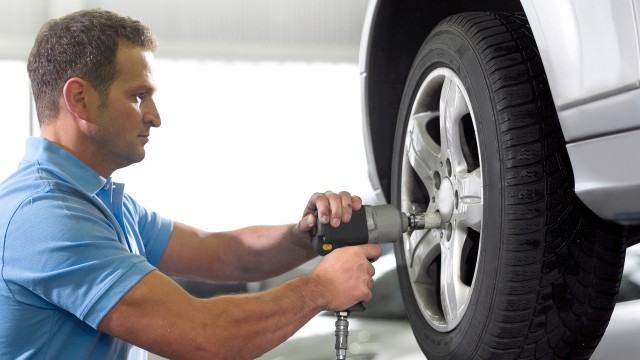When do tyres need changing?
When do tyres need changing?
There are three important factors to bear in mind: age, tread depth and possible damage. You should inspect your tyres regularly – at least once a month. Most tyres have tread wear bars - bands of hard rubber that you can only see when your tread depth has gone beyond the limit for safe driving, which is generally 1.6mm. Tyres should also be replaced if they are more than 10 years old – even if the tread depth is still adequate.
You should also check your treads for uneven wear patterns that can indicate other problems with your tyres or your vehicle. Tyres should also be replaced if there’s a bulge or a blister on the sidewall of a tyre. These can lead to tyre failure and could be dangerous.
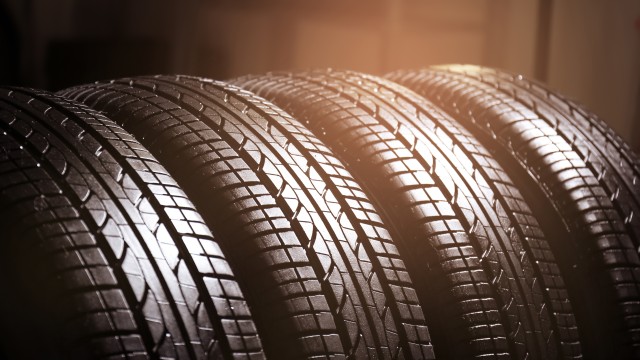
How important is the correct inflation pressure?
How important is the correct inflation pressure?
The weight of a vehicle is not borne solely by the tires, the air in them also plays an important part. The safety risk increases with every journey if the inflation pressure is too low:
- The braking distance is unnecessarily long.
- There is an increased risk of tire damage caused by excessive heat generation.
- Fuel consumption rises due to the greater rolling resistance.
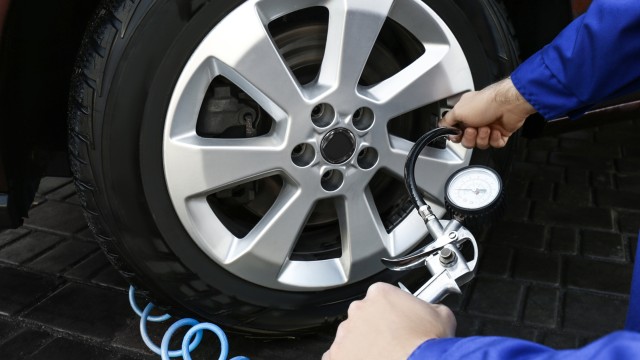
What is the right way to clean tyres?
What is the right way to clean tyres?
Do you tend to use a high-pressure cleaner on your car? If so, it is important to take particular care when cleaning the tyres. A concentrated jet of hot water from close range can cause considerable damage, as the pressure on impact causes the temperature of the tyre material to increase and small blisters to form in the rubber, thus weakening it. Weakened rubber runs the risk of the sudden bursting of tyres under heavy load or at high speed.
Points to watch when cleaning tires:
- Maintain a distance of at least 20 cm between the end of the gun and the tyre.
- Use a wide-spread rather than a concentrated jet.
- Even in the event of stubborn dirt, never direct the jet at a single point but rather move it constantly back and forth.
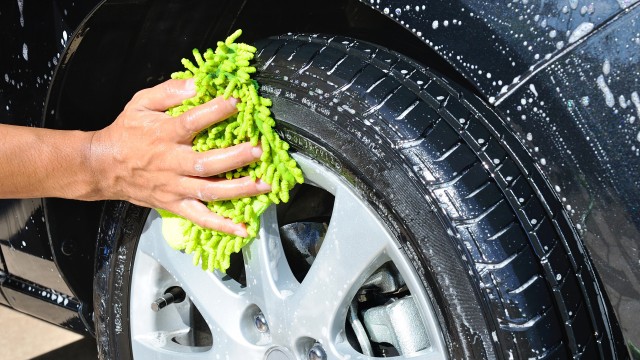
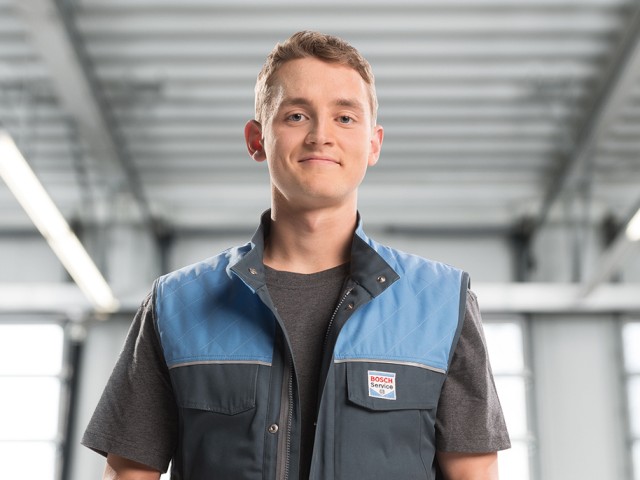
Our experts advice
“Check the inflation pressure on every second refueling stop. Or come straight to us and we will do it for you.”

